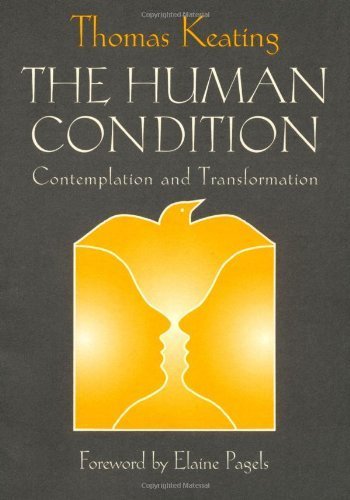The Human Condition: Contemplation and Transformation (Wit Lectures-Harvard Divinity School) / Thomas Keating
| List Price: | |
Our Price: $6.53 | |
|
For Bulk orders
| |
|
Used Book Price: | |
| The Human Condition: Contemplation and Transformation (Wit Lectures-Harvard Divinity School) / Thomas Keating | |
| Publisher: Paulist Press | |
| Availability:In Stock. | |
| Sales Rank: 47575 | |
|
Similar Books
He begins with the great questions of self-knowledge: "Who are you? Where are you hiding?" The seemingly fruitless search for human happiness hinges on the answers to these: "Where am I in relation to God, myself and others?" and "Whoever I think I am, I am not." The contemplative journey is "divine therapy" for the illness of the human condition, a way to open up gradually to our own wounded unconscious. It is an excuse in letting go of the false self, which is the only self we know, and in realizing that God is the only true security. Divine love is the full affirmation of who we are.
Writing with simplicity and depth, Keating brings common sense, extraordinary enlightenment, and fifty years of experience to the topic and the practice of discovering the presence of God.
Now you can buy Books online in USA,UK, India and more than 100 countries.
*Terms and Conditions apply
Disclaimer: All product data on this page belongs to  .
.
No
guarantees are made as to accuracy of prices and information.










